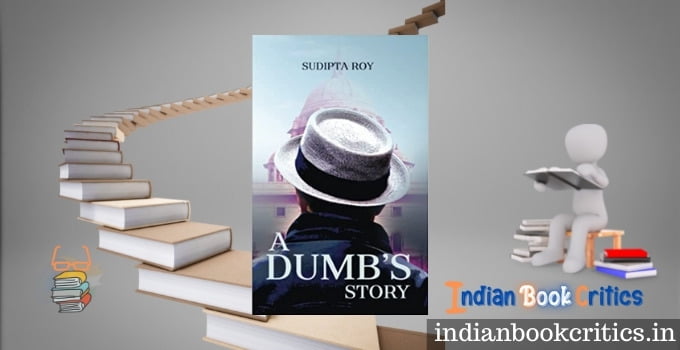“For me, there was no option left. I was almost dead when I chose this path, but you were not. You had a good job, good career prospects. Still, you sacrificed everything for me.”
This is how Nairit describes, in short, on this occasion, how did Bayu help him in the pursuit of life when everything was lost for Nairit after his voice was lost due to cancer and when he met an accident that made him helpless just at the beginning of their transformation drive. Let’s get to the origin of the story so that you may understand what’s it in the work by Sudipta Roy, A Dumb’s Story: A silent rattle that rips the rug of raunchy!
The novel begins with Nairit in the hospital reflecting upon his past and remembering his successful career coming from a place where there were many constraints in terms of resources and wealth. Despite his limitations in a manifold, Nairit braves the challenges and lands himself in a place that sees him succeed and march forward in the race of life – gaining promotions, friends’ respects, perks, wealth and admiration as well as the love of a person whom he sees as a life partner in near future, Sana. What else could a person want today? Sudipta could easily have given the novel a turn that ends with an erotic romance or a romantic thriller or something in the lines of Bhagat or others tailing him. However, he had other plans and we see the protagonist diagnosed with cancer that takes his tongue and thus the voice away. A software professional who has to attend multiple meetings, give presentations, meet colleagues and juniors and seniors, can we imagine his life without a tongue? Diagnosis, parents coming through and supporting him, operation, Sana fading away in the background, Bayu coming together with Nairit, after an initial loss of motivation a purpose of lime emerges and the novel takes a turn that seldom a modern novelist could have thought of.
“I have no more aspirations left to go back to my corporate life. I won’t even mind if I die, or who knows, I may die soon. And it’s not new to me. I was the union leader in my college, wasn’t I? Can’t I play the role on a large platform for the nation?”
This is a novel that symbolises many things and one important among the many symbolic conclusions is that people are sympathetic towards the process of nation-building and they want to contribute in large numbers. Nairit’s decision to join politics just because he has nothing to lose and he cannot continue in corporate life because of his disability is problematic as well as hopeful. Why did he not want to get into a corporate job again after he lost his tongue? Is our political system so weak that only people who have nothing to lose join politics? Or, on the flip side, isn’t our democracy so strong that it can accommodate people with ideas and energy in spite of their disabilities?
Nairit begins with his passionate service in Mrityunjay, a village. He decides to help locals getting inspired to produce artefacts and creates a platform to make it global. However, as it happens in every good story, bad guys enter and the scene is temporarily dominated by them. Nairit is attacked but luckily escapes death. Though his motivation does deter for a fraction of time. So, what about his ideas? Will he leave his passion and motivation behind to take early retirement from his political career? Will the leader of the position help him? Will he be able to reach the parliament? There are many questions that will be answered once you read the novel to the end.
Technically, the novel has an ideal length, a little hectic narrative that mixes a person talking about himself and someone else talking about the same person and a storyline that is engaging but a little slower than what modern readers are accustomed to reading. However, as I mentioned earlier, the novel is about transforming the world outside and transforming oneself from the inside. And therefore, the opening up will be a little slower as the readers need to be accommodated and understand the psychological, emotional and abstract situations being described in the work along with the actual progress of the novel. Sudipta Roy, in spite of being a first-time author back then, has done it quite well.
To end this book review, I would like to point out that the novel could have been just fractionally faster and it could have been achieved by shortening the prolonged emotional chit-chat with oneself. A Dumb’s Story totally justifies the concept and wonderfully executes the plot scheme, if may use a little technical lexicon. You will find many new things to read and a satisfying conclusion that does not play to the gallery of the readers. Enjoyable will be a little lesser than what we may call it – entertaining or not is up to you but the novel is more than what you may have read in recent years! Worth a read!
Get a copy of this work from Amazon India by clicking the link below:
Buy the novel from Amazon – click here
Review by Anand S J for Indian Book Critics
A Dumb’s Story by Sudipta Roy – book review
-
IBC Critica Rating
Summary
A Dumb’s Story: A silent rattle that rips the rug of raunchy! by Sudipta Roy is a novel that has many questions to ask and one answer to offer (to many questions that it asks). What’s the purpose of your life? Do you only realise it after you have lost many things?
